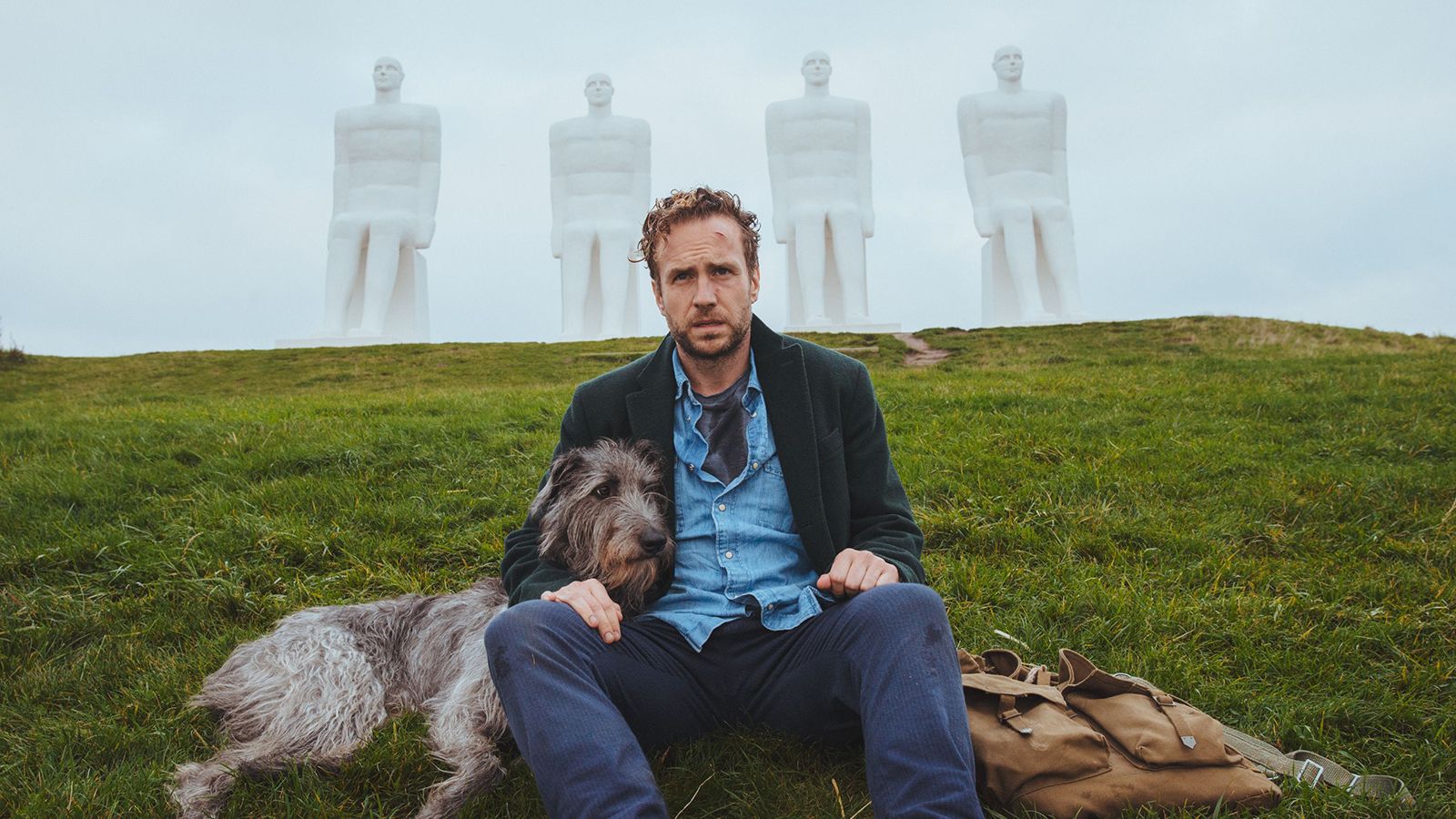Welshman Herb (Rafe Spall) is not having a good time of things. His wife has left him, his son ignores him, his mother despises him and the town where he grew up (and has never left) holds no job opportunities for him. Things come to a head after his giro is withdrawn, a group of teenage delinquents confiscate his “daps” (trainers) and an old school friend returns after the best part of 20 years away, incredulous at Herb’s inactivity in the meantime.
Finally deciding it’s time to make a change, Herb receives inspiration from a documentary about Danish prisons, which paints them as five-star hotels in comparison to his own poky flat and current miserable existence. Rather than leave town to look for employment in a more socioeconomically active environment, then, Herb concocts the hair-brained scheme of hotfooting it to Scandiland, committing a petty crime and idling away the rest of his days in incarcerated Hygge.
Instead of talking some sense into their glum school chum, Herb’s two best friends take his bonkers scheme seriously, with one of them even helping Herb to cadge a lift across the North Sea inside a shipping container. Of course, things don’t quite go to plan for our downtrodden hero on arrival in Copenhagen, as he finds himself wholly unequipped to carry out his half-baked plan and simultaneously charmed by barmaid Mathilde (Simone Lykke), who lays on the homespun hospitality with thick relish.
With a premise as playfully daft as Denmark’s, you might expect similar silliness to be uniform throughout the piece, but that’s where Adrian Shergold’s fourth feature falls down. Never quite sure of what it wants to be, the film is at once indie comedy and bleak satire on the uncaring face of society. Scenes where Herb loses control or rages against the machine sit uneasily alongside the ones where his friend’s dog can’t hold its bowels or a forthright truck driver gives Herb a dressing down.
The thing is, these dual elements could theoretically perch side-by-side with one another, if only the narrative unfolded with more credibility. But the synopsis itself is flimsy enough to begin with and things don’t improve from there; despite Spall and Lykke’s best efforts, it’s difficult to fathom their characters’ motives at times. Other plot points are clear contrivances too, detracting from the film’s overall enjoyability and rendering it an exercise in the suspension of disbelief rather than effective social commentary or even just light entertainment.
It’s a shame, because Spall’s natural ability should be more than enough to carry the film through and both he and Lykke excel in imbuing their otherwise unlikely characters with real pathos and finesse. The cinematography is also artfully shot and the soundtrack complements the general feeling of disillusionment, but while there are chances to explore deeper themes such as depression and the decline of rural towns in Britain, they’re looked over in favour of trite resolutions that don’t add up. Despite some strong aspects, the film itself is an opportunity missed.
